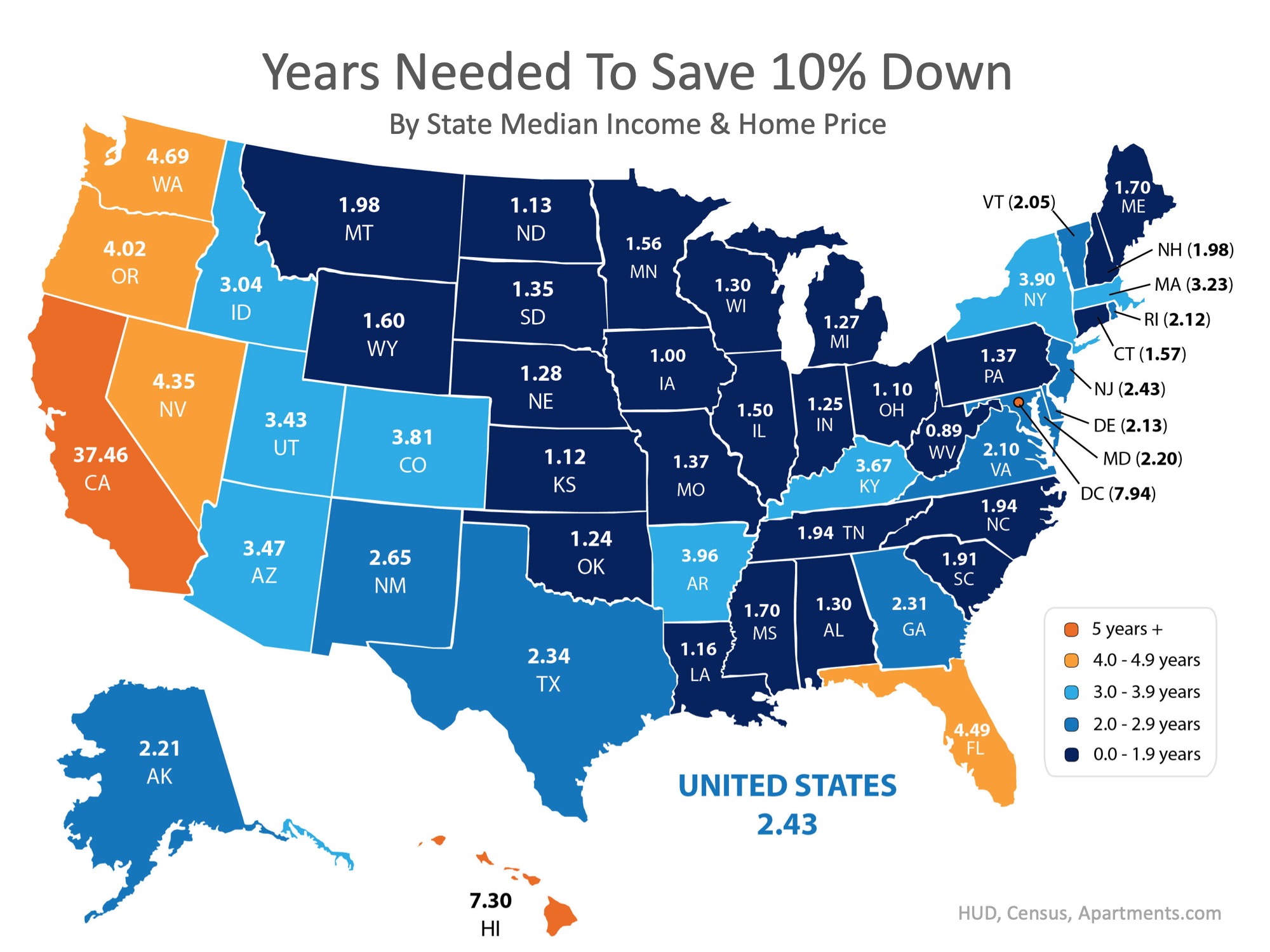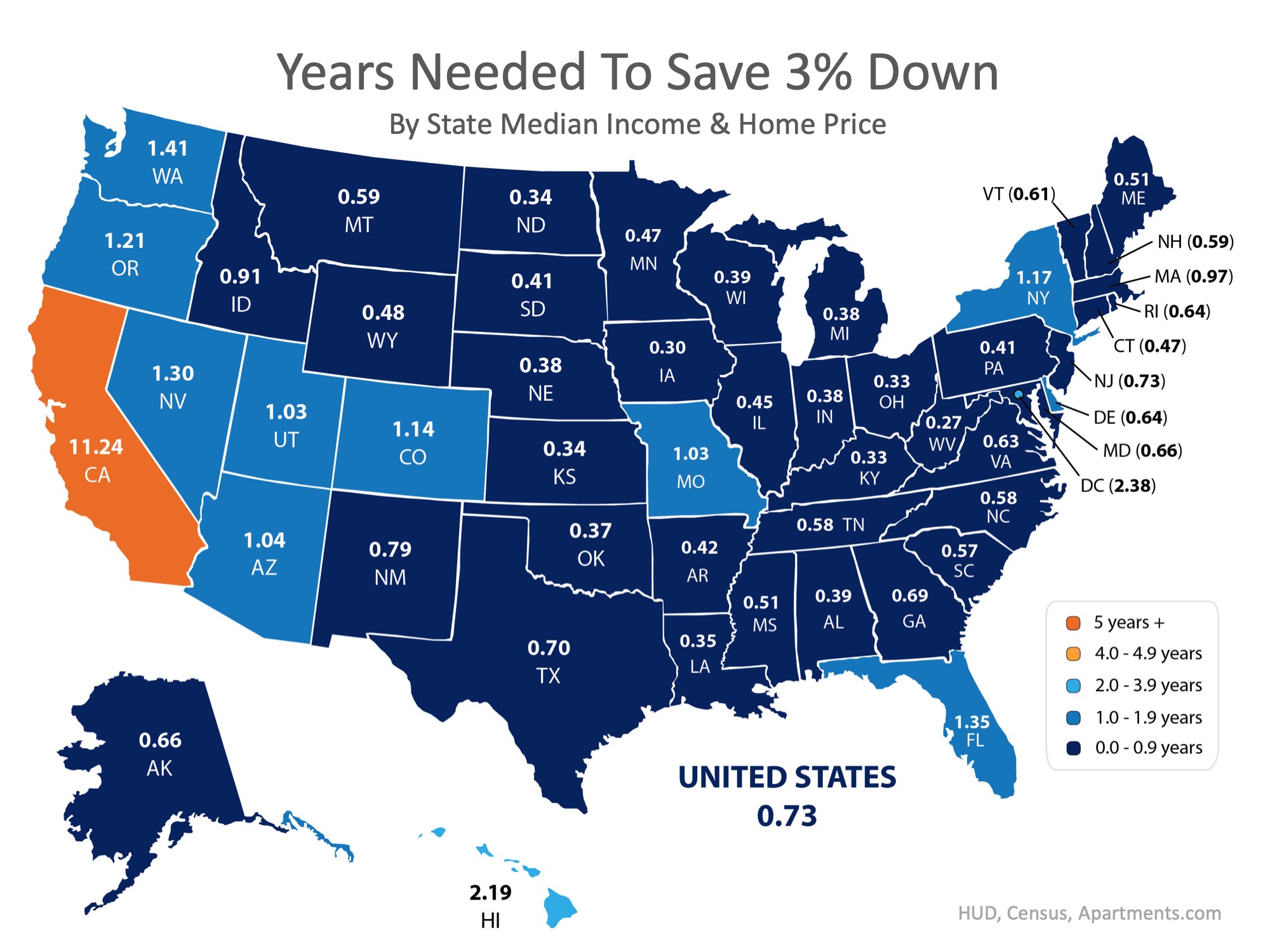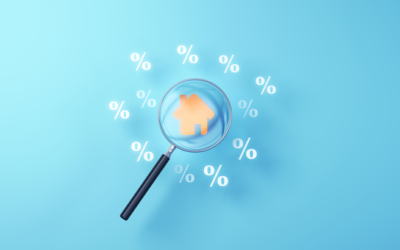How Quickly Can You Save Your Down Payment?

Saving for a down payment is often the biggest hurdle for a first-time homebuyer. Depending on where you live, median income, median rents, and home prices all vary. So, we set out to find out how long it would take to save for a down payment in each state.
Using data from HUD, Census and Apartment List, we determined how long it would take, nationwide, for a first-time buyer to save enough money for a down payment on their dream home. There is a long-standing ‘rule’ that a household should not pay more than 28% of their income on their monthly housing expense.
By determining the percentage of income spent renting in each state, and the amount needed for a 10% down payment, we were able to establish how long (in years) it would take for an average resident to save enough money to buy a home of their own.
According to the data, residents in Kansas can save for a down payment the quickest, doing so in just over 1 year (1.12). Below is a map that was created using the data for each state:
What if you only needed to save 3%?
What if you were able to take advantage of one of Freddie Mac’s or Fannie Mae’s 3%-down programs? Suddenly, saving for a down payment no longer takes 2 to 5 years, but becomes possible in less than a year in most states, as shown on the map below.
Bottom Line
Whether you have just begun to save for a down payment or have been saving for years, you may be closer to your dream home than you think! Let’s get together to help you evaluate your ability to buy today.
To view original article, visit Keeping Current Matters.
What Mortgage Rate Do You Need To Move?
While mortgage rates are nearly impossible to forecast, the optimism from the experts should give you insight into what’s ahead.
Finding Your Perfect Home in a Fixer Upper
Your agent can also offer advice on which upgrades and renovations will set you up to get the greatest return on your investment.
The Benefits of Downsizing When You Retire
When you downsize your house, you often end up downsizing the bills that come with it, like energy costs, and maintenance requirements.
Why There Won’t Be a Recession That Tanks the Housing Market
The fundamentals of the economy, despite some hiccups, are doing pretty good.
What To Know About Credit Scores Before Buying a Home
Working with a trusted lender is the best way to get more information on how your credit score could factor into your home loan.
Why You Want an Agent’s Advice for Your Move
A real estate advisor can anticipate what could happen next and work with you to put together a solid plan.







